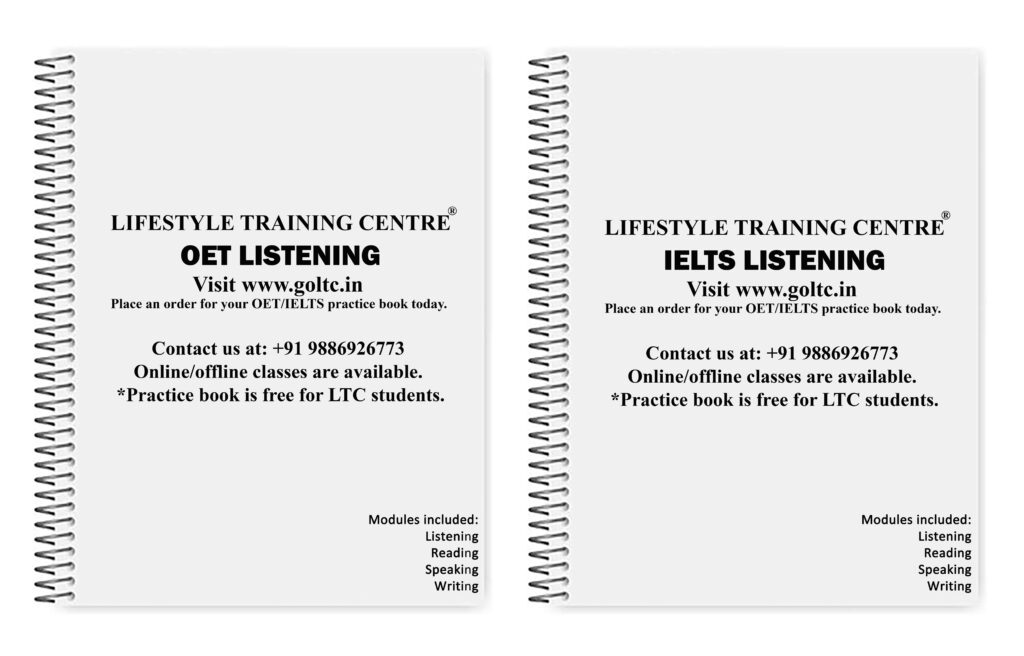Task 1
1. Do you prefer to communicate with people through letters or emails? Why?
I definitely lean towards emails, particularly because of their speed and convenience. Emails allow for instant communication, cutting out the waiting time that is typically involved with traditional letters. In our fast-paced world, this efficiency is a game-changer, especially in business settings where time is money. Furthermore, emails are environmentally friendly as they reduce the need for paper, making them a sustainable option. While handwritten letters have a certain nostalgic charm, emails are the more practical choice in today’s world.
2. What is your opinion on handwritten letters in the digital age?
Although we live in an era dominated by digital communication, handwritten letters still hold a certain emotional value that emails cannot replicate. A handwritten letter is often more personal and demonstrates a level of thoughtfulness that is increasingly rare. In a world where instant messages have become the norm, a letter feels like a breath of fresh air—it stands out. There’s a romantic appeal to handwritten letters, as they convey sincerity and effort. Despite their sentimental value, I must admit that in most cases, emails are simply more practical.
3. In what circumstances do you think sending a letter is better than an email?
Certain situations still call for a handwritten letter rather than an email. For instance, when it comes to formal invitations, job applications, or legal documents, a physical letter often conveys a level of professionalism that an email cannot match. Letters also have a personal touch, which is crucial when celebrating milestones like weddings or anniversaries. In such cases, the sentimentality and effort put into a letter speak volumes. For these special moments, letters tend to outshine their digital counterparts.
4. How do you feel about the role of emails in the workplace?
Emails have completely transformed the way we work, making communication quicker and more efficient. In the workplace, they allow for swift exchanges of information, whether it’s for project updates, meeting schedules, or feedback. Not only do they save time, but they also serve as a record of discussions, which can be referred to later, ensuring accountability. However, with the ease of sending emails, it can sometimes lead to overcommunication or misunderstandings, making it important to strike the right balance.
5. Do you think emails have the same personal touch as handwritten letters?
While emails are efficient, they often lack the personal warmth that a handwritten letter provides. A handwritten letter requires effort and thoughtfulness, which makes it feel more genuine. On the other hand, emails can sometimes feel cold and impersonal, even though they are convenient and effective. Emails allow for rapid communication, but in terms of emotional depth, a handwritten letter truly takes the cake. Ultimately, the level of personalisation depends on the context and the sender’s intentions.
6. How has the rise of emails impacted the postal service industry?
The rise of email communication has undoubtedly taken a toll on the postal service industry. With fewer people relying on traditional letters, the volume of mail has declined. This shift has forced postal services to adapt by focusing on services like parcel delivery, international shipping, and logistics. However, the decline in letter mail has made it harder for the industry to maintain its relevance in the digital age. Postal services must reinvent themselves in order to survive in an increasingly paperless world.
7. Do you think email communication is more or less formal than letter writing?
Email communication can be both formal and informal, depending on the context. While formal emails are often used in professional settings, the informality of emails allows for more casual exchanges, especially between friends or family. In comparison, a handwritten letter is typically seen as a more formal and personal method of communication, often used for official purposes. Ultimately, emails have become an adaptable medium, with the tone being tailored to suit the message’s intent. They can be as professional or as casual as necessary.
8. How do you manage and organise your emails effectively?
To manage my emails efficiently, I use folders and labels to categorise different types of communication, from work-related to personal messages. I also make use of the filtering and search functions to quickly find important emails when needed. Additionally, I regularly unsubscribe from unnecessary mailing lists and delete old emails to keep my inbox clean. A well-organised inbox helps me stay focused and ensures that nothing slips through the cracks.
9. What are the advantages of email communication in education?
In education, emails have become an essential tool for both students and teachers. They enable quick communication about assignments, exams, or class schedules, ensuring that students stay up-to-date. Emails also provide a convenient way for students to ask questions or seek clarifications from teachers. Moreover, they allow for the easy distribution of materials, such as study guides or reading lists, which are accessible at any time. In a remote learning environment, emails help maintain consistent communication and support student engagement.
10. How does email communication differ across cultures?
Email communication can vary greatly depending on cultural norms. In some cultures, directness and brevity are valued, with people preferring to get straight to the point. In contrast, other cultures may place more emphasis on politeness and formality, with emails often beginning with lengthy pleasantries and polite inquiries. Understanding these cultural nuances is crucial for maintaining effective and respectful communication, especially in international business. The tone, structure, and even the speed of email responses can vary significantly from one culture to another.
List of vocabulary used: (Task 1)
- Correspondence – Communication through letters, emails, or other forms of written messages.
- Recipient – A person who receives something, especially a letter or email.
- Subject line – The title or heading of an email indicating its topic.
- Attachment – A file or document that is sent along with an email.
- Inbox – The folder where received emails are stored.
- Outbox – The folder where sent emails are stored.
- Spam – Unsolicited or irrelevant email, typically advertisements.
- Sender – The person who sends a letter or email.
- Draft – An incomplete or provisional version of an email or letter.
- Signature – The block of text at the end of an email containing the sender’s contact details.
- Reply – A response to an email or letter.
- Forward – To send an email or message to another person.
- CC (Carbon Copy) – A method of sending an email to multiple recipients.
- BCC (Blind Carbon Copy) – Sending an email to multiple recipients without revealing the others’ addresses.
- Formal tone – A polite, professional style of writing typically used in business or official communication.
- Informal tone – A casual and friendly style of writing used with friends and family.
- Mailing list – A collection of email addresses for sending information to multiple recipients.
- Reply all – A function in email to reply to all recipients of the original message.
- Recipient address – The email address to which a message is sent.
- Forwarding address – A new address where emails are redirected.
- Encryption – The process of securing an email to prevent unauthorized access.
- Unread – An email that has not been opened or read by the recipient.
- Open rate – The percentage of emails that have been opened by recipients.
- Subject matter – The main topic or focus of the email or letter.
- Email client – Software used to manage and access emails (e.g., Gmail, Outlook).
Idioms with Meanings:
- Hit the send button – To send an email or message.
- Inbox zero – A term used when there are no unread or unaddressed emails in the inbox.
- At the click of a button – Refers to something that can be done easily and instantly with just one action, such as sending an email.
- Leave someone on read – To read a message without replying to it.
- Falling through the cracks – When something important is overlooked or missed, often due to the volume of emails.
- Get the ball rolling – To start something, especially initiating communication or a project through an email.
- Send a quick note – To send a short and informal message, often via email.
- Bite the bullet – To face an unpleasant task, such as sending a difficult or formal email.
- Behind the scenes – Actions that are hidden or secret, especially in the context of email management or business communication.
- Out of the blue – Something that happens unexpectedly, such as receiving an unexpected email or message.
- In the loop – To keep someone informed, often used in the context of email communication.
- Cross the line – To exceed boundaries, often referring to sending an email that is too informal or inappropriate for a professional setting.
- Burn bridges – To damage relationships permanently, for example, by sending a harsh or rude email.
- Throw someone under the bus – To betray or sacrifice someone, often done in emails for blame or criticism.
- On the same page – To agree or be aligned with others, often used in email communication to ensure clarity.
- Make a long story short – To summarize or condense information, often used when replying to long emails.
- Read between the lines – To understand the deeper meaning or hidden message in an email.
- Touch base – To make contact or communicate, typically via email.
- At your earliest convenience – A polite way of asking someone to respond to an email when they have time.
- Out of office – A status or notification indicating that someone is unavailable, often used in email auto-replies.
Phrases with Meanings:
- Please find attached – Used in emails to indicate that a document or file has been included as an attachment.
- Best regards – A polite sign-off used at the end of an email.
- Looking forward to hearing from you – A phrase used to express anticipation for a reply in emails.
- As per our conversation – A phrase often used in emails to refer to previous discussions.
- Thank you for your prompt response – A courteous phrase used to acknowledge a quick reply in email communication.
- Please do not hesitate to contact me – A polite way of offering further assistance in an email.
- For your reference – Used when sending documents or information for the recipient’s review.
- Kindly note that – A polite way to draw attention to an important piece of information in an email.
- In response to your inquiry – A phrase used to begin a reply to a question or request made in an email.
- I hope this email finds you well – A polite and friendly opening line in emails.
- I’m writing to inform you – A formal way of beginning an email that provides information.
- Thank you for your attention to this matter – A polite way to conclude an email, especially when requesting action.
- Should you have any questions, please feel free to ask – A phrase used to encourage communication and provide reassurance in an email.
- I hope to hear from you soon – A polite phrase used when expecting a response to an email.
- I appreciate your time – A way of expressing gratitude for someone’s time in responding to an email.
- Best wishes – A friendly sign-off used in both personal and informal emails.
- I look forward to your reply – A phrase used to express eagerness for a response.
- Please advise – A polite request for guidance or information.
- I regret to inform you – A formal way of delivering disappointing or bad news in an email.
- Sincerely yours – A formal sign-off used in professional or official emails.
Task 2
Topic: A Change You’d Like to Make
– Question: Describe a change you’d like to make in your daily routine.
– You should say:
– What is the change, and why do you want to make it?
– How do you plan to implement this change?
– What benefits do you expect from it?
– Do you think it will be challenging to adapt?
Task 3 follow-up questions and answers
1. How do you think making small habit changes can impact long-term well-being?
Small changes in our habits can have a significant impact on our overall well-being. Over time, these tiny adjustments can compound into major improvements in health, productivity, and happiness. The key is to focus on consistency, rather than perfection. Gradual change also reduces the chance of feeling overwhelmed or burnt out. By starting small, we can ease into more sustainable changes and avoid unnecessary pressure on ourselves.
2. What role does motivation play in initiating a shift in one’s lifestyle?
Motivation is the driving force behind any change in lifestyle. It provides the spark that gets the ball rolling, but it’s willpower and discipline that keep it moving forward. The challenge lies in maintaining motivation when life gets in the way, so it’s important to find a source of motivation that’s genuine and deep-rooted. Motivation might wane over time, but a solid purpose and commitment can ensure the change sticks.
3. In what ways can mindfulness help when you’re trying to embrace a new habit or break an old one?
Mindfulness plays a pivotal role when introducing new habits or breaking old ones. By staying present, we become more aware of our choices and can make conscious decisions that align with our goals. It allows us to interrupt automatic behaviour, giving us a chance to choose differently. Through mindfulness, we can also develop a sense of patience and self-compassion, which is crucial when reworking established patterns.
4. How do external influences, like family or peers, shape the choices we make regarding our lifestyles?
External influences often serve as both encouragement and pressure when it comes to lifestyle changes. Family members and friends can offer support and accountability, but they can also inadvertently push us towards certain habits based on their own preferences. The key is to stay true to your own desires, while balancing the need for social approval. It’s easy to fall into the trap of doing what’s expected, but real change happens when we make decisions that align with our authentic selves.
5. How do you view the concept of comfort zones, and how do they affect your willingness to change?
Comfort zones can be both a safety net and a trap. While they provide a sense of security, staying in a comfort zone can hinder personal growth and expansion. Change requires stepping out of this safe space, which can be uncomfortable and daunting. However, embracing discomfort is often the key to transformation, as it pushes us to face challenges head-on. Over time, what once seemed uncomfortable becomes second nature.
6. Is it more difficult to change a habit when you’ve been practicing it for many years?
Changing a long-standing habit can be particularly challenging because it has become ingrained in our daily lives. Over time, we develop a pattern of behaviour that becomes automatic, making it harder to notice or alter. The longer we’ve been in a routine, the more it feels like second nature. However, with determination and a clear plan, even deeply ingrained habits can be reworked over time. It’s all about breaking the cycle gradually and with patience.
7. What would be the biggest obstacle when trying to make a change to your life’s rhythm or activities?
The biggest obstacle to making a change often comes from within. Self-doubt and fear of failure can act as powerful deterrents, making us hesitant to take the plunge. Other challenges might include external pressures, time constraints, or a lack of resources. Overcoming these obstacles requires a strong mental commitment, resilience, and sometimes a little help from others. The journey is never smooth sailing, but facing these challenges head-on can ultimately lead to personal empowerment.
8. Do you think societal pressures can influence our prioritisation of different aspects of life?
Absolutely. Society often sets certain expectations for what should take priority, whether it’s work, family, or social obligations. These external pressures can sometimes lead us to overlook or neglect our own needs. However, self-awareness and the ability to say no to undue pressures are crucial in determining our own priorities. By becoming more in tune with our own values, we can avoid being swayed by external forces and focus on what truly matters to us.
9. How does the concept of discipline influence the process of changing one’s habits?
Discipline is the backbone of any successful habit change. It’s not always about motivation, but about staying the course even when motivation dips. Without discipline, it’s easy to let changes fall by the wayside. However, discipline is not about rigidity; it’s about creating a structure that allows for flexibility and adaptation. It’s about making mindful decisions every day that bring us closer to the change we desire.
10. Can overthinking prevent someone from successfully implementing a change?
Overthinking can certainly stall progress. When we dwell too much on potential outcomes or obstacles, we can become paralyzed and avoid taking action altogether. It’s a classic case of analysis paralysis. The key is to find a balance between planning and action. While it’s important to consider potential risks, at some point we must take the plunge and learn as we go, rather than waiting for the perfect moment.
List of vocabulary used: (Task 3)
- Habit: A regular practice or routine.
- Motivation: A reason or incentive for doing something.
- Discipline: Self-control or the ability to follow rules or instructions.
- Resilience: The capacity to recover quickly from difficulties.
- Self-doubt: Lack of confidence in oneself or one’s abilities.
- Compounding: Increasing in size, intensity, or significance over time.
- Ingrained: Firmly established and difficult to change.
- Overthinking: The process of thinking about something too much or for too long.
- Mindfulness: The practice of being aware and present in the moment.
- External pressures: Influences or expectations imposed by others.
- Obstacles: Things that block or hinder progress.
- Self-awareness: The ability to reflect on and understand one’s own emotions, thoughts, and behaviors.
- Patience: The ability to wait calmly for something without getting upset.
- Commitment: A promise or determination to complete something.
- Analysis paralysis: The state of overthinking a situation to the point where no action is taken.
- Authentic: Genuine or true to one’s self.
- Pressure: The feeling of stress or tension caused by external demands.
- Mindset: The established set of attitudes or beliefs held by an individual.
- Empowerment: Giving someone the authority or power to do something.
- Flexibility: The ability to adapt or change easily to new circumstances.
Idioms with Meanings:
- Break the cycle: To stop a repetitive pattern or habit.
- Take the plunge: To make a bold decision to do something difficult or risky.
- Second nature: A skill or ability that becomes automatic after repetition.
- Smooth sailing: An easy or trouble-free process.
- On the fence: To be undecided about something or not take a firm stance.
- Bite the bullet: To endure something painful or unpleasant that is unavoidable.
- Get the ball rolling: To start an activity or process.
- In the driver’s seat: Being in control of a situation.
- Burning the candle at both ends: Working too hard or overexerting oneself.
- Throw in the towel: To give up or admit defeat.
- By the book: To do something exactly as it is supposed to be done.
- A change of pace: A shift to a different, often more relaxing or enjoyable, routine.
- Keep your eye on the ball: To stay focused on what’s important.
- Hit the nail on the head: To be exactly correct or accurate.
- Out of your comfort zone: To do something new or unfamiliar that makes you uncomfortable.
- Jump on the bandwagon: To join a popular activity or trend.
- Throw caution to the wind: To take a risk and act without worrying about the potential consequences.
- Burn the bridges: To permanently damage or end a relationship or opportunity.
- Go the extra mile: To do more than what is expected.
- The ball is in your court: It is your turn to make a decision or take action.
Phrases with Meanings:
- Out of the ordinary: Something unusual or uncommon.
- Under the weather: Feeling sick or unwell.
- In full swing: In the middle of an activity, at its peak.
- A step in the right direction: A positive or constructive action.
- A step back: To pause or reassess a situation.
- A breath of fresh air: Something new or refreshing.
- In the long run: Over a long period of time.
- Take a leap of faith: To take a risk based on trust or belief, despite uncertainty.
- Keep your head above water: To manage to survive or stay afloat despite difficulties.
- In the heat of the moment: Acting impulsively or without thought, often during intense emotions.
- At a crossroads: At a point in life where an important decision must be made.
- Be on the same page: To agree or have a shared understanding with someone.
- A hard pill to swallow: Something unpleasant or difficult to accept.
- Put the cart before the horse: To do things in the wrong order.
- A matter of time: It’s inevitable that something will happen.
- Out of the blue: Something happening unexpectedly.
- In a nutshell: To describe something concisely.
- Hit the ground running: To start something quickly and successfully.
- The sky’s the limit: There are no limits to what can be achieved.
- Pave the way: To make things easier for others to follow or achieve.
IELTS Speaking Task Topics
Click on any topic to explore more!
Names

Learn about the importance of names and their cultural significance.
Study / Job

Discuss various aspects of studying and working in different fields.
Hometown

Explore the charm of your hometown and its unique features.
Accomodation

Understand various types of accommodation and living situations.
Weather

Learn about how weather influences daily life and activities.
Time

Discuss the concept of time, its importance, and time management.
Television

Talk about the role of television in modern entertainment.
Museum

Discuss the cultural importance of museums and historical exhibits.
Holidays

Explore the significance of holidays and different celebrations.
Films

Learn about the impact of films on culture and society.
Leisure Time

Discuss how leisure activities impact personal well-being.
Sport

Talk about the role of sports in health, entertainment, and culture.
Vegetables and Fruits

Discuss the health benefits and importance of fresh produce.
Maths

Explore the role of mathematics in various aspects of life.
Sky

Discuss the beauty and scientific significance of the sky.
Clothes&Fashion

Explore how clothing reflects culture and personal expression.
Weekend

Discuss the importance of weekends and ways people relax.
Reading

Learn about the importance of reading and various reading habits.
Sleep

Explore how sleep impacts physical and mental well-being.
Trees&Plants

Discuss the environmental and health benefits of plants.
Newspaper

Discuss the evolving role of newspapers in the digital age.
Texting

Explore the role of text messaging in modern communication.
Memorising

Learn techniques for improving memory and memorization.
Travelling

Discuss the importance and impact of traveling in modern society.
Communication

Explore the modes and significance of communicating well
Letter&Email

Explore the differences and significance of letters vs. emails.
Swimming

Discuss the benefits of swimming for health and fitness.
Snacks

Explore the role of snacks in daily nutrition and lifestyle.
Photography

Discuss photography’s cultural and artistic significance.
Help

Talk about the importance of offering and receiving help.
History

Discuss historical events and their impact on modern society.
Handwriting

Explore the significance of handwriting in education and culture.
Music

Learn about the influence of music on emotions and society.
Colours

Discuss how colours affect perception and mood.
Teachers

Explore the role of teachers in shaping students’ futures.
Being Alone

Talk about the experience and benefits of spending time alone.
Teamwork

Learn the importance of teamwork in professional and social contexts.
Countryside & City

Explore the charm and benefits of living in the countryside.
Social Media

Discuss the impact of social media on society and relationships.
Friends

Explore the importance of friendships in life.
Artificial Intelligence (AI)

Talk about the future of AI and its role in society.
Climate Change

Discuss the causes and consequences of climate change.
Transportation

Explore different modes of transportation in your area.
Sustainable Transportation

Explore ways to make transportation more environmentally friendly.
Space Exploration

Learn about the latest advancements in space exploration.
Shopping

Explore how shopping influences culture and the economy.
Modern Technology

Discuss how modern technology is reshaping society.
Technology

Learn about the role of technology in everyday life.
Sustainable Living

Explore ways to live sustainably for the future of the planet.
Globalisation

Learn about the effects of globalisation on society and economies.
Global Warming

Discuss the causes, effects, and solutions to global warming.
Gender Equality

Explore the importance of gender equality in modern society.
Health and Fitness

Discuss the importance of maintaining a healthy lifestyle.
Renewable Energy

Learn about renewable energy sources and their impact on the environment.
Cultural Traditions in Kerala

Explore the unique cultural traditions of Kerala, your hometown.
Cultural Traditions in Your Country

Learn about the cultural traditions in your country.
Education System

Discuss the education system in your country and its effectiveness.
Traditional Cuisine

Explore the significance of traditional cuisines in your culture.
Do you need printed IELTS/ OET practice material? Place your order today. Available now for just Rs: 1,100 (including shipping all across India) Contact us at our WhatsApp number: +91 9886926773 to place your order. (Free for LTC students)

We hope this information has been valuable to you. If so, please consider a monetary donation to Lifestyle Training Centre via UPI. Your support is greatly appreciated.

Would you like to undergo training for OET, PTE, IELTS, Duolingo, Phonetics, or Spoken English with us? Kindly contact us now!
📱 Call/WhatsApp/Text: +91 9886926773
📧 Email: [email protected]
Visit us in person by following the directions on Google Maps. We look forward to welcoming you to the Lifestyle Training Centre.
Follow Lifestyle Training Centre on social media:
Thank you very much!